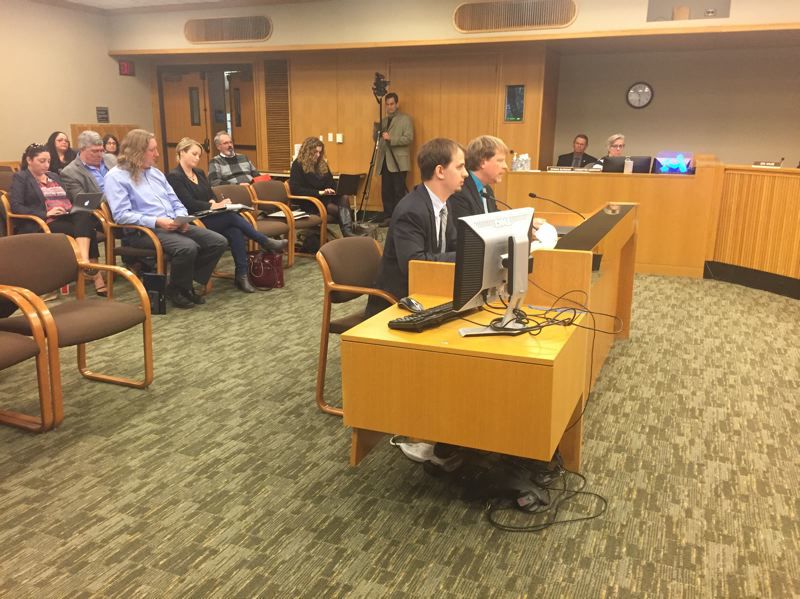Support grows for stringent tracking of medical pot
Published 8:00 am Tuesday, April 11, 2017

- PARIS ACHEN/CAPITAL BUREAU - Left to right at table, Jeff Roades, Gov. Kate Brown's marijuana policy advisor, and Rob Bovett of the Association of Oregon Counties testify in front of the Joint Committee on Marijuana Regulation at the Oregon Capitol in Salem Tuesday, April 11, 2017.
SALEM — As fears of a federal crackdown on Oregon’s marijuana program intensify, support is growing for a proposal to require more stringent tracking of the state’s leaky medical cannabis industry.
Members of a legislative committee on marijuana regulation has indicated they won’t pursue a merger of the recreational and medical cannabis regulatory systems. The Oregon Liquor Control Commission regulates recreational pot, while the Oregon Health Authority oversees medical marijuana regulation.
However, some lawmakers, Gov. Kate Brown and the Oregon Cannabis Business Council are pushing for the medical marijuana program to be subject to the barcode-based system used by the OLCC to track recreational marijuana products from seed to sale. Existing law requires medical growers, processors and dispensaries to self-report on a monthly basis the product they have on hand and have transferred or received.
But an analysis by Oregon State Police shows that product is leaking into illicit market.
And less than half of medical growers, processors and dispensaries are complying with the self-reporting requirement, said Jeff Rhoades, Brown’s marijuana policy adviser.
Marijuana remains illegal under federal law, but state marijuana programs now operate under the grace of the Obama administration’s 2013 “Cole memo.” The memorandum by then-U.S. Deputy Attorney General James Cole allows states to operate the programs without federal interference provided that the states maintain a robust regulatory system to keep pot out of the hands of minors and the illicit market.
The OSP analysis concludes that Oregon is failing to comply with that memo and is a large source of illicit marijuana sold nationwide. The Trump administration has shown a more disapproving approach to legalized pot and an interest in cracking down on programs that are out of compliance.
“Anything we can do to cut off leakage and to increase compliance with the Cole memo would put us in a stronger position,” said Sen. Ginny Burdick, D-Portland, the co-chairwoman of the marijuana committee.
Burdick proposed an amendment to existing marijuana legislation to require the more stringent tracking, which she knows will provoke “a lot of screaming and yelling.”
Brown supports the amendment requiring the medical industry to participate in seed-to-sale tracking, Rhoades testified Tuesday, April 11.
The OLCC tracking system has shown to be useful in tracking cannabis and keeping it out of the illicit market and will make the state’s marijuana industry a defensible enterprise, Rhoades said. If the federal government were to crack down on the state’s marijuana industry, Oregonians would lose jobs, and the state would lose tax revenue, he said.
Peter Gendron, president of the Sungrown Growers’ Guild, said the requirement is too expensive and complicated for medical growers who have operated in a loosely regulated system since medical pot was legalized in 1998.
Paris Achen
Portland Tribune Capital Bureau
503-385-4899
email: pachen@portlandtribune.com
Follow us on Twitter
Visit Us on Facebook





